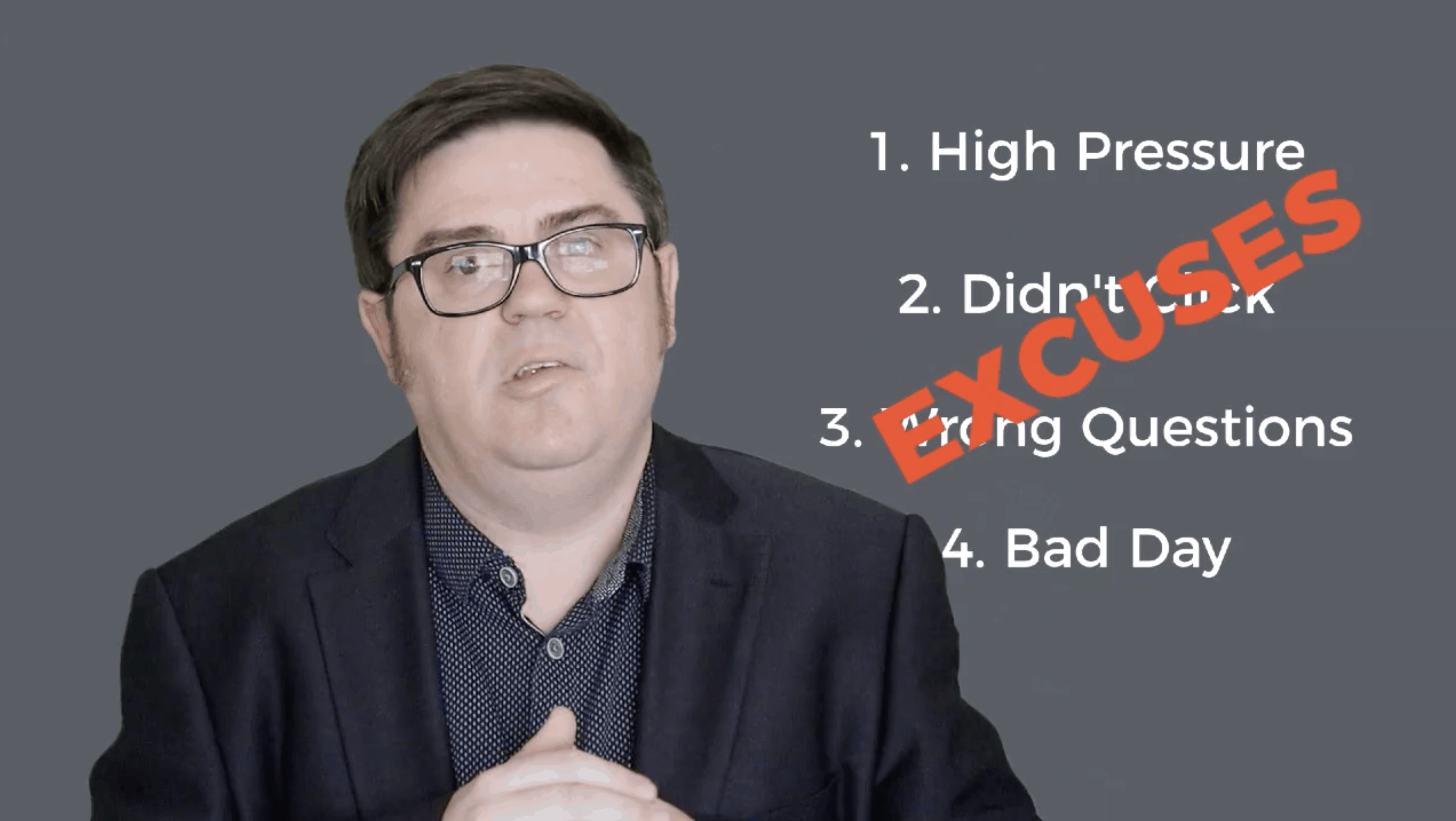Have you ever had an interview failure before? Did you really suck in your interview! Well, this post is about how not to suck in the job interview. As an Executive and Career Coach, I have helped many candidates prepare for job interviews as well as sat in on quite a few (both sides of the table) myself. So I wanted to share with you some tips for avoiding an #epicfail in your next job interview.
What’s the best way to avoid interview failure and sucking in the job interview? Well, there are shortcuts and hacks of course. But like everything that is important in life. The number one way to avoid failure and succeed in your next job interview is ensuring that you have put in sufficient practice and preparation.
The rest of this post will be dedicated to exploring this in more detail.
Awkward Handshakes and Interview Failure.

First, off the rank, let’s talk about how to enter their job interview room and not suck in the first few minutes. One of the best ways to suck in the first few crucial minutes of the interview is to do something awkward when you enter the room. The most common trap here is the handshake.
No one wants to shake hands with a limp-wristed interview candidate. Or even worse, see someone stumbling over a desk or a chair to try and extend their hand knocking over a jug of water. That’s a really great way to get off to a bad start. You’re going to be nervous from the get-go and the panel members are going to think that you lack confidence.
So how could we not suck at that moment? Well, my first tip here is do you really need to shake their hand in the interview? Often it’s best to take the lead of the chair of the interview panel, and the interview panel members themselves. If they don’t offer a hand. Maybe don’t offer yours. Particularly if they are set up behind the big desk or it means that you are going to have to shake more than five or six hands and a big panel interview.
But if you are planning to go in with a power shake or really good handshake, why not practice that beforehand? If you’re one of those people who’s not used to shaking hands in social situations, and you’re planning on shaking hands in the interview, then incorporate this into your practice.
Not Having An Example
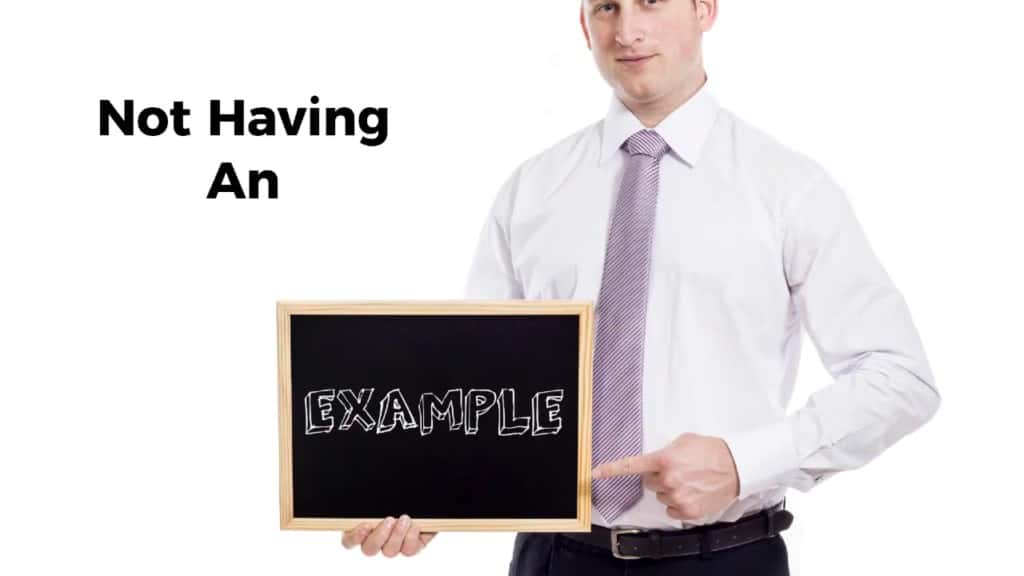
The second great way you suck in an interview is to not have a good example when you’re asked for it.
In most interviews for jobs these days, there’s going to be at least one question where they say, can you tell me about a time when you did…And then it’s going to be over to you.
What the panel is looking for are areas and examples of your past work or possibly even something in your education or even outside of education and work, where you can show that you’ve risen to that sort of challenge in the past before.
Now it’s extremely awkward if you have not got an example of prepared and there is a big long pause and silence while you try to think of something.
How can you know what sort of examples you need to prepare for the interview? Well if you actually go and read through the job description, you’ll find some selection criteria which give you a lot of information about the sort of examples of past work that they may want to hear from you. These would generally be about things like meeting success targets or in a team resolving conflict, and using communication skills. It depends on what the selection criteria are for the job, but if you read through those selection criteria, you can then think about your own career, your own work, your life, your academic success. And you can then think about the sort of examples that might be needed in the interview and be prepared for the day.
Gender Stereotypes
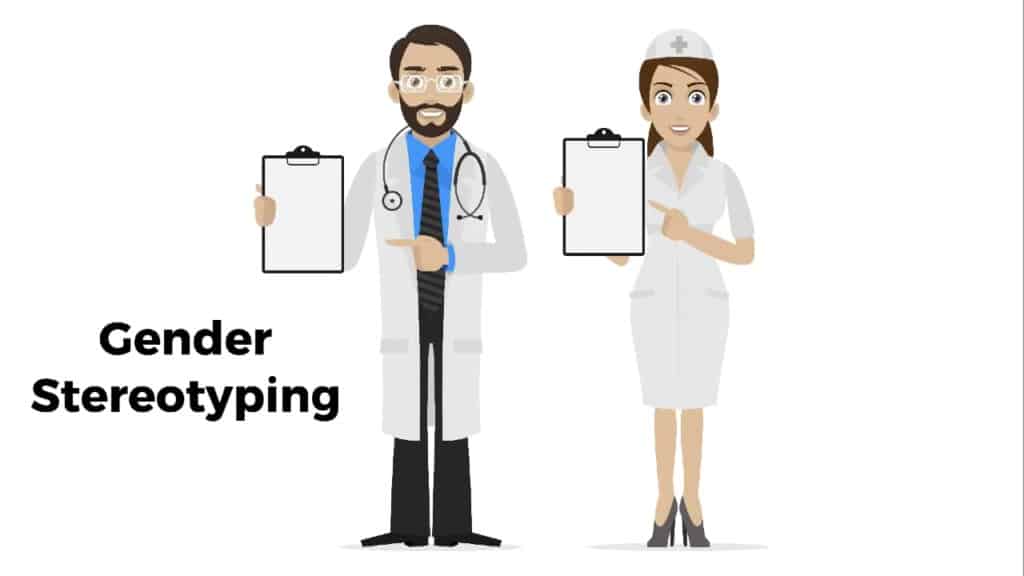
The next sure-fire way to suck at an interview is to fall for Gender stereotypes.
What do I mean about gender stereotypes? These days, most interview panels are normally comprised of both male and female members of the existing team. And they may throw a question to you, which is a hypothetical situation about working in a team and you start referring to a certain team member as she or him. But they actually haven’t given you that information.
So a classic example is inside the world of medicine where they might ask you about resolving a conflict between yourself as a doctor and a member of the nursing staff. And you start referring to that member of the nursing staff as she or her or a lady. That’s a sure-fire way of putting yourself out of alignment with any member of the panel who’s got any appreciation for gender diversity in the workplace.
So the solution here is to avoid referring to people as she and he based on stereotypes.
Performing in a job interview is a skill. But the problem with the job interview as a skill is that it is only a skill that you very rarely occasionally use and the rest of the time it’s meaningless.
Dr Anthony Llewellyn | aka The Career Doctor
Talking Too Much
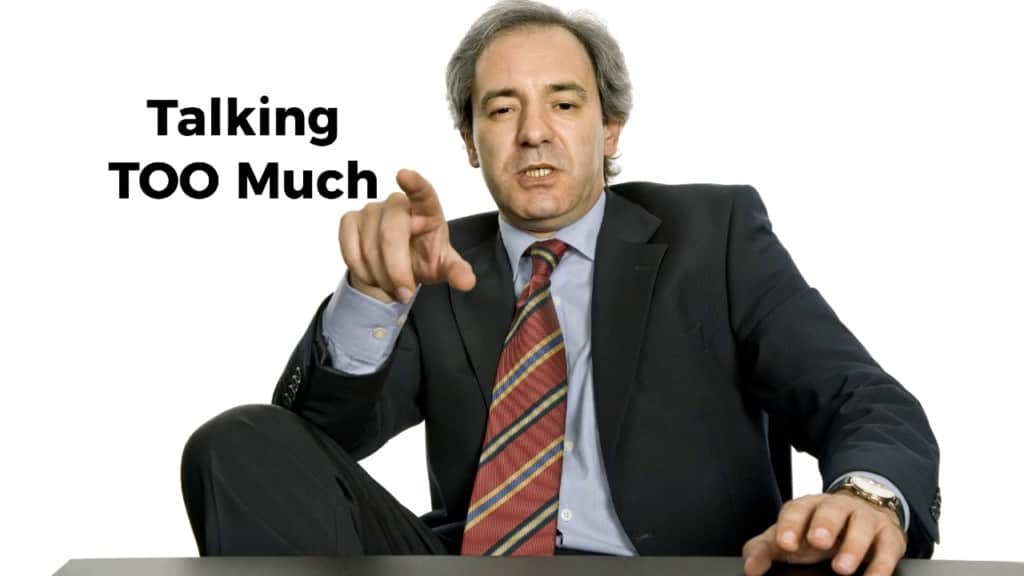
The next great way to suck at a job interview is actually talking too much.
What do I mean by talking too much?
In interviews, you can talk for too long in terms of your answers. You can normally tell this because you find yourself rambling on rather than being succinct and giving an organized response. Or, you can talk too much about yourself.
When you talk too long and you talk about yourself, that means that you are not talking about the actual job you’re applying for, the organization that you want to join, the interviewers themselves, and the team that you are intending to join. You are also not talking about the teams that you’ve worked within the past and the connections you might have to other people that might be helpful in the role.
This is all important stuff as it sells you to the panel. Far too often I hear people talking about themselves in “I terms” rather than “We terms” in relation to the successes they’ve had in their career
You see the panel may be looking for someone brilliant, but they also don’t want someone who’s going to dominate them. They want someone who can come in and brilliantly contribute to the hardworking and high performance of the existing team.
Silly Questions
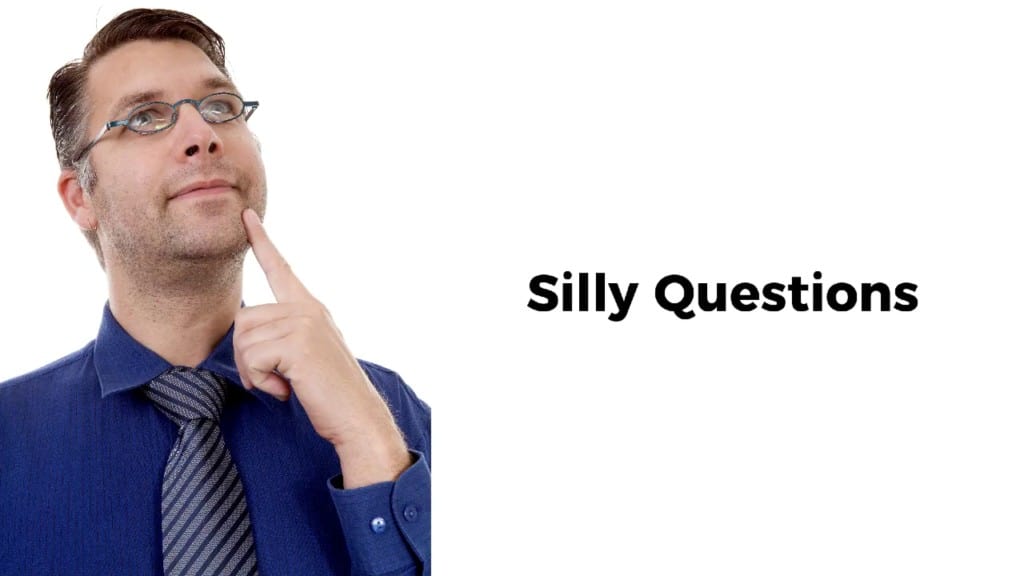
The next way to suck at the job interview is to ask a silly question.
At the end of each interview there’s usually a time where the panel says something like:
“Those are all the official questions we have for you, but do you have any questions for the panel?”
How often have we managed to completely unravel a really good interview process by asking a silly, or stupid, or dumb question at the end of the interview?
Examples of silly questions are questions that show you really haven’t done your basic research. Such as what are the rosters for the job, or where will I exactly be working, or who will I be reporting to? Or questions that might give the impression that it’s not really the job you are interested in, but something else. Like questions about salary.
There are a number of ways of correcting this problem and avoiding sucking right at the end of the interview. One is to think about whether you really need to ask a question at all.
You can often just answer that last question by saying something like. “No thanks. I’ve had enough opportunities to ask questions already. Thank you very much for the opportunity”.
If you are really intending on asking a question then do your research and prepare a question that will dazzle them or wow them.
At the end of each interview there’s usually a time where the panel says something like: “Those are all the official questions we havefor you, but do you have any questions for the panel?” How often have we managed to completely unravel a really good interview process by asking a silly, or stupid or dumb question at the end of the interview?
Dr Anthony Llewellyn | aka the Career Doctor
Can You Really Wing It?
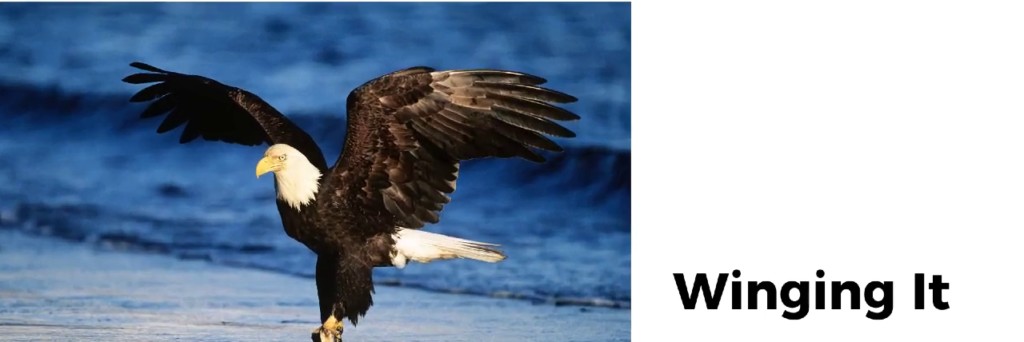
Can you tell what all these points are leading up to?
If you have had a bad interview performance before, you’ve probably thought of a few reasons why it went wrong. It might’ve been that it was a high-pressure environment and you just got stressed. It might just be that you felt you didn’t “click with the interview panel”. It might be that they asked you all the wrong questions. Or maybe you just had a bad day.
What do all these reasons or excuses have in common?
They all reflect the fact that you probably didn’t prepare and practice for the interview.
Performing in a job interview is a skill. But the problem with the job interview as a skill is that it is only a skill that you very rarely occasionally use and the rest of the time it’s meaningless.
And the problem with skills that we don’t use very often is that they degrade quite quickly. We’re not regularly practicing our interview performance. So without regular practice and preparation in the lead-up to your interview, your interview performance is likely to suck.
So the number one tip for not sucking in the job interview is to spend the time to practice and prepare for your job interview.
Related Questions.
Question. Are There Things I Should Prepare Prior to the Interview?
Answer. There are a number of things you should try to prepare prior to the interview. These range from doing your job research, to researching the panel members, as well as more practical things like putting together a portfolio of your work, making sure you have an appropriate outfit, and working out how you will travel to the interview. We have summed up a few of the questions you should ask yourself in this article.
Question. If I Think I May Need Some Coaching For the Interview. What Should I Consider?
Coaching is a really excellent way to maximize your interview skills practice in a short period of time. A good coach will not hold you accountable for your practice schedule but also help make improvements to your technique and interview responses. However, not all coaches are the same and a general rule of thumb is you probably pay for what you get. We have summarised some of the considerations in this article.
